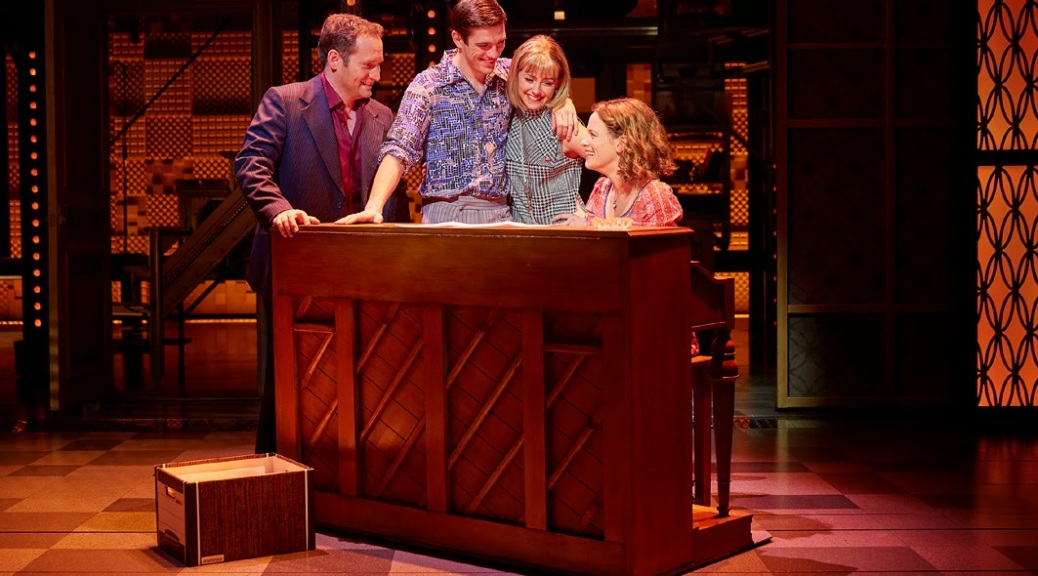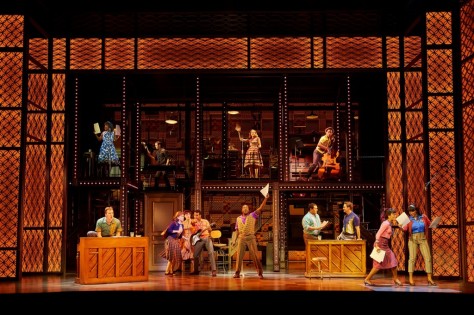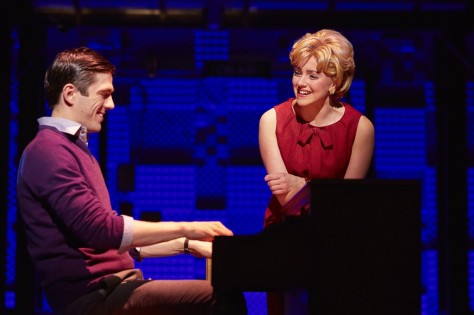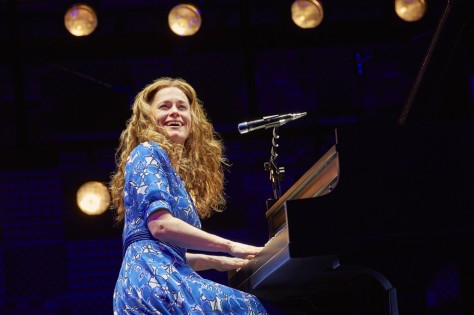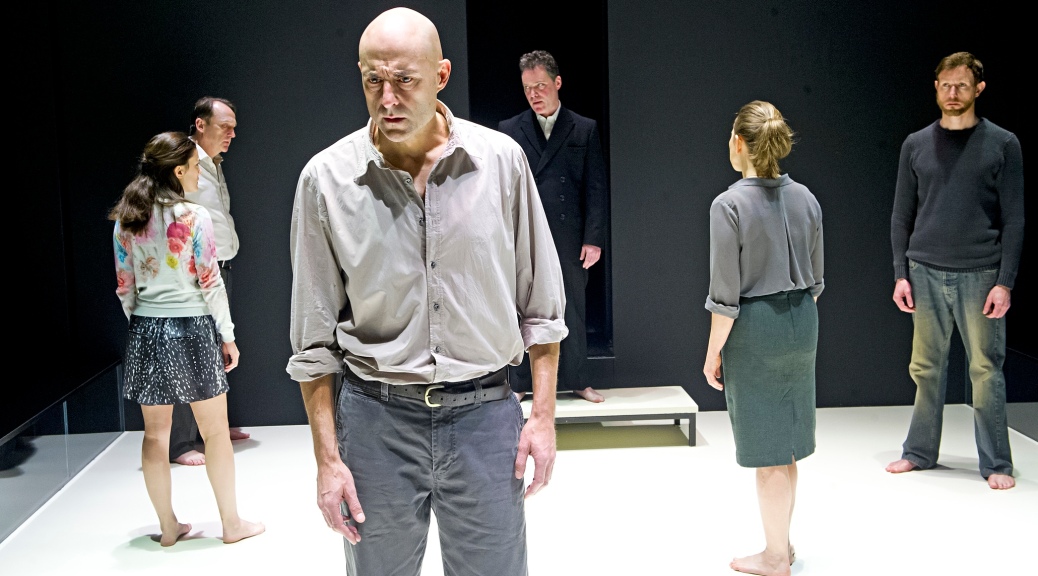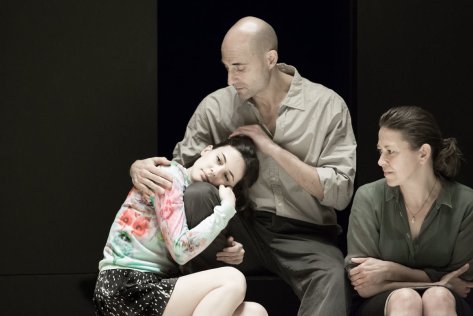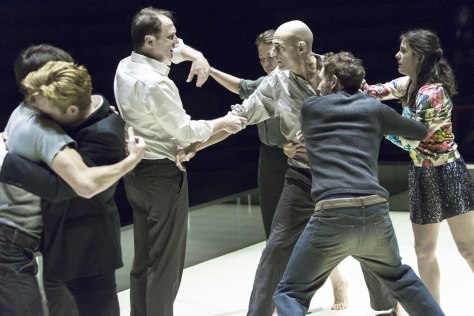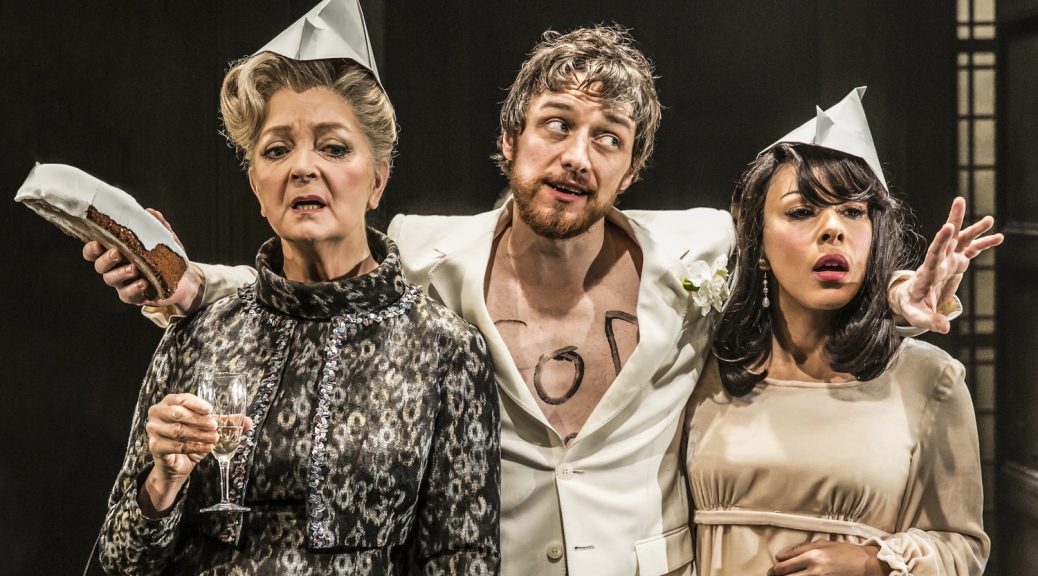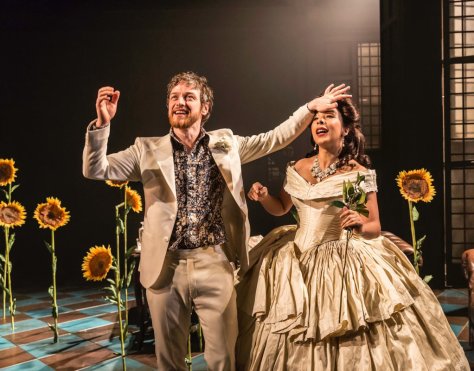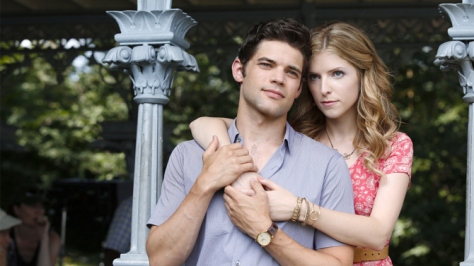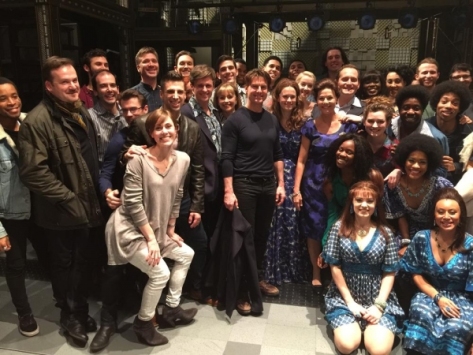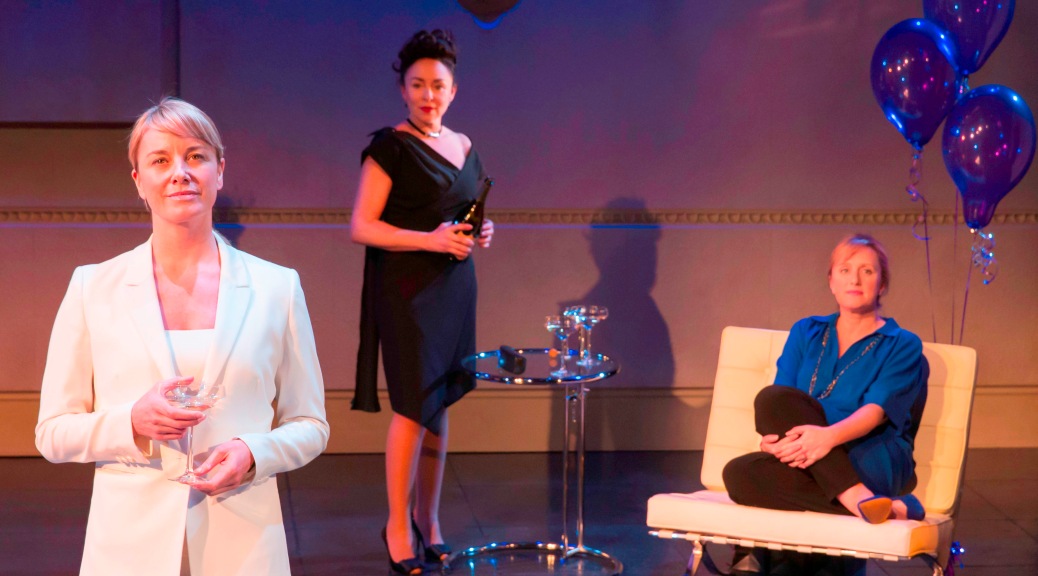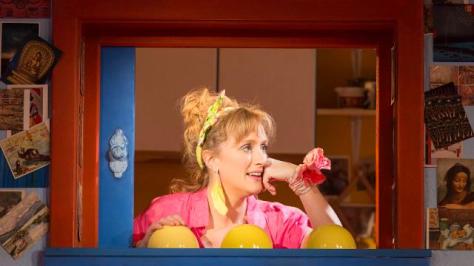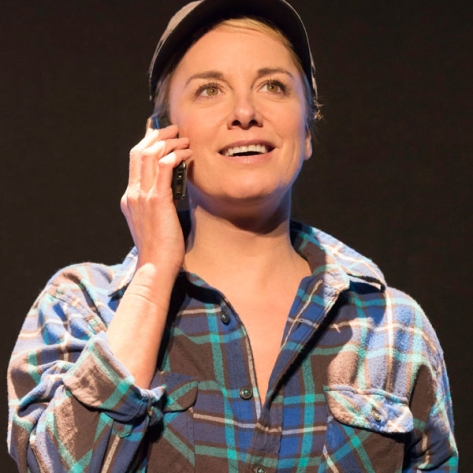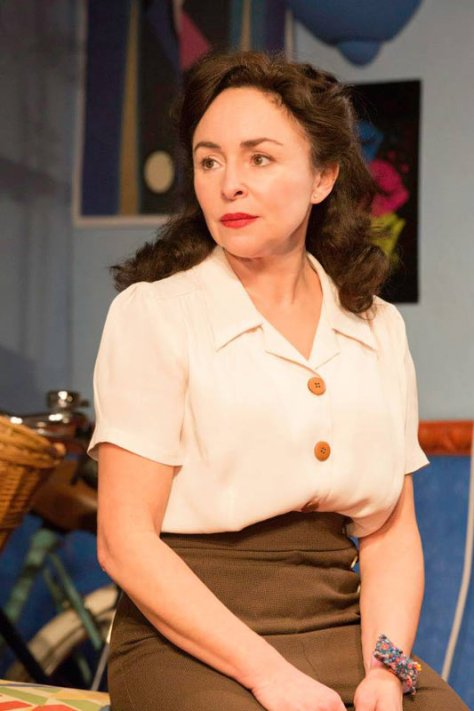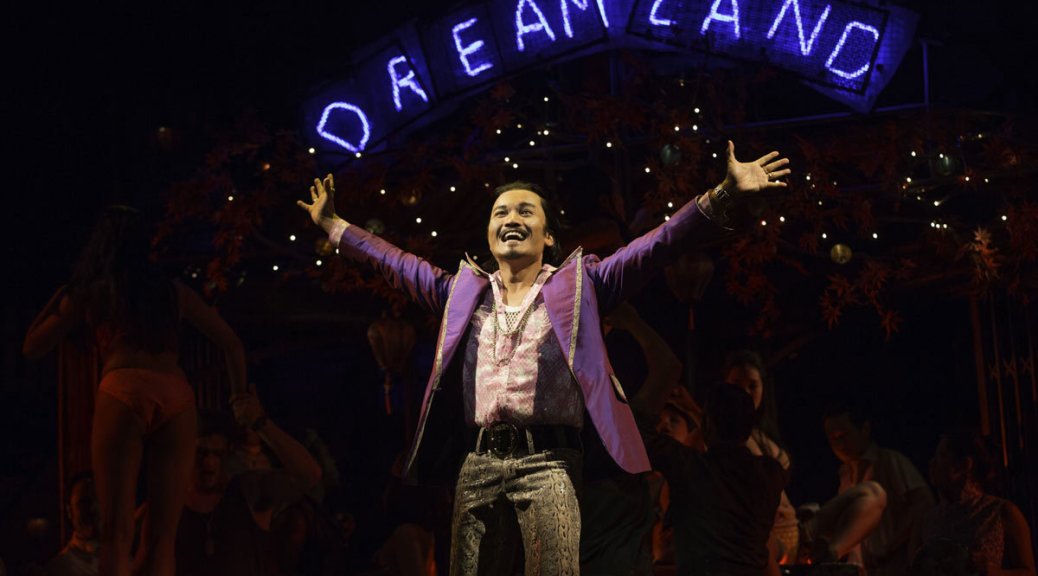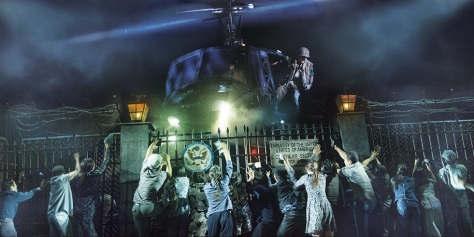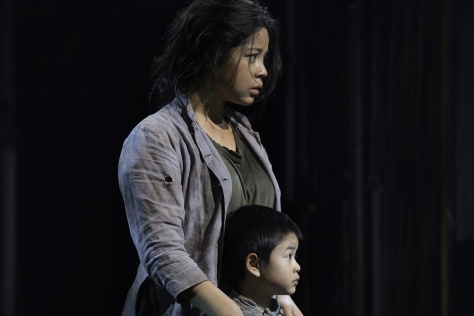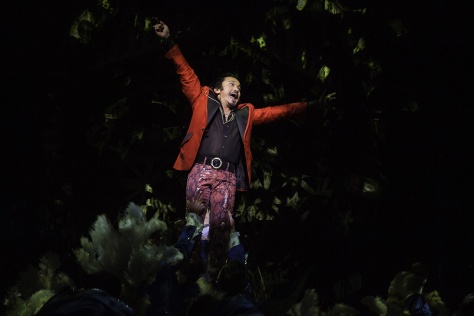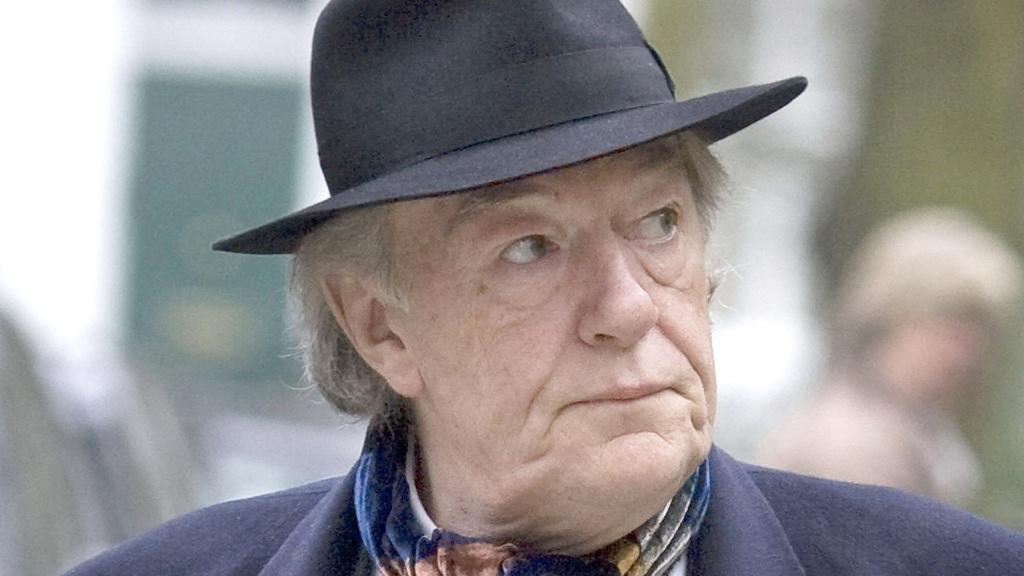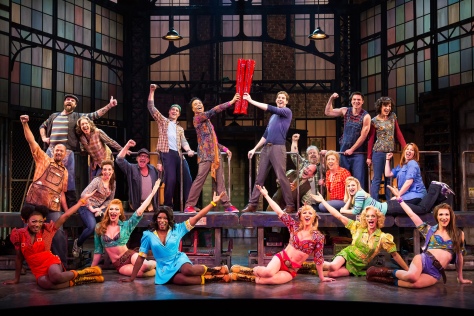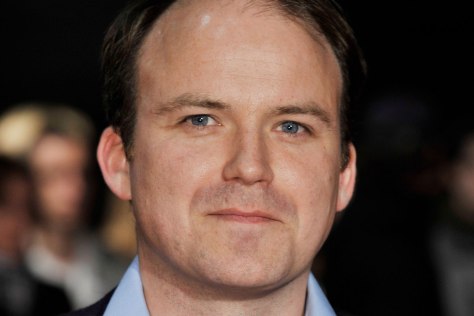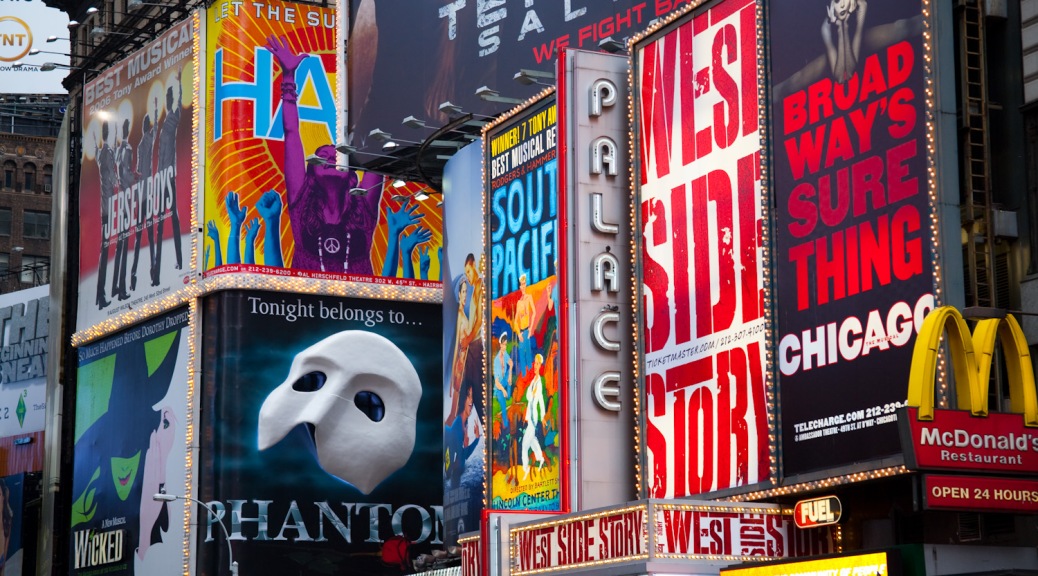Discuss and analyse salient trends in contemporary musical theatre. Consider relevant social, political, historical and economical landmarks which may have affected concept, output and design. Target specifically, but not exclusively, material from and key practitioners involved in the two most recent decades, 2000 – 2013
Since 2000, theatre has developed in the way it is presented but also how it is absorbed. This is due to changing scenarios away from the theatre world, as well as the situations within the theatrical community.
On September 11th 2001, a tragic terrorist attack hit the World Trade Centre in New York City. Never before had a tragedy of this calibre been seen. This struck fear into the lives of New Yorkers, visitors to the city and the whole world. Due to the fear that had overcome the population, any large scale event or building seemed in jeopardy, sports events, large churches and parents pulling their children out of large schools for fear of another attack. In an interview with Ian Evans (2014), a theatre producer that was living and working in New York at the time of the attack, who described it as “earth shattering”, I found out “9/11 temporarily destroyed Broadway. It was the most catastrophic thing to ever happen to musical theatre and it completely changed people’s attitudes towards it”. A huge amount of shows closed and it was years before audience levels for anything of a large scale of more than a couple of hundred people increased again. Eventually, every show, excluding The Phantom of the Opera did close. The reason that the hit musical Les Misérables eventually closed was because of its depressing story and nobody wanted to feel sad anymore. A lot of theatres shut down for months after the events of 9/11 and because Broadway thought it would never be able to pick itself up again, many theatres were torn down and new buildings erected in their place. “Eventually, out of that, came the feel-good shows such as Avenue Q”. When it opened two years after 9/11, the public were much more open for something new, particularly the comedy that Avenue Q brought with it. The influence of Broadway can be seen in London’s West End, with feel-good shows such as Avenue Q and The Producers having successful transfers, and other feel-good, familiar shows such as Mary Poppins (2004) regaining audiences and their faith in musical theatre (Evans, 2014). Even in all the tragedy that surrounded 9/11, there were some surprise successes, such as Urinetown. The musical was originally due to open on 13th September 2001 but was forced to be pushed back to the 20th September, and with the show being fairly unknown and featuring dark subject matter, producers were unsure if the show would survive. However, from the week beginning 30th September, Urinetown was receiving above 90% attendance and in the same week made $220,875. The show was a surprise hit and had a very successful run, closing in January 2004 and winning three Tony Awards for Best Book, Best Score and Best Direction from ten nominations (IBDB, 2014 online).
A huge trend in recent years is musicals based on motion pictures. Whilst many have been created, there have been varying amounts of success. The Producers, with book, music and lyrics by Mel Brooks, made its Broadway debut in April 2001 (IBDB.com, 2014 online). It was based upon the 1967 film of the same name, which Brooks wrote and directed (IMDB.com, 2014 online). This musical version stayed true to the intentions of the film, because both had the same creative team. It was a huge success both commercially and critically, earning over $52 million in the 2001-2002 season, with all weeks being above 97% capacity, excluding the week after the 9/11 terrorist attacks (IBDB.com, 2014 online). It was hailed by critics, with Ben Brantley saying he would be “hard-pressed to choose one favorite bit from the sublimely ridiculous spectacle that opened last night” (nytimes.com, 2001 online). The show also holds the record for the most Tony Awards won by a show, play or musical, winning 12 out of 15 nominations due to multiple acting nominations in one category, therefore winning the most possible awards (playbill.com, 2001 online). The show had a very successful run, closing 6 years later in April 2007 after 2502 performances (IBDB.com, 2014 online). The Producers being a prime example of a successful musical based on a successful film. There are musicals that use films as their stimulus that have not been well received by both critics and audiences, such as David Yazbek and Jeffrey Lane’s 2010 musical Women On the Verge of a Nervous Breakdown, based on Pedro Almodovar’s 1988 film of the same name. Commercially it wasn’t a great success, rarely surpassing 80% attendance at the Belasco Theatre and only lasting for 69 performances (IBDB.com, 2014 online). The general critical consensus was that the production featured a talented cast of stars such as Patti LuPone, Laura Benanti and Brian Stokes Mitchell, but the material was less talented and that the film shouldn’t have been made into a musical. Eric Haagensen of Backtage.com states:
The material’s resistance to musicalization is most evident in the pages of dialogue dominating the second half of Act 2 and the short, anticlimactic song that ends the show with a whimper. Ultimately, the lack of a defining purpose keeps “Women” perpetually on the verge of success (backstage.com, 2010 online)
Reviews aside, the show still received three Tony nominations, with Yazbek being nominated for Best Original Score and both LuPone and Benanti receiving nominations for Best Performance by an Actress in a Supporting Role in a Musical. (IBDB.com, 2014 online).
One of the most obvious changes is the styles of music that are being performed. In 2000, Aida by Elton John and lyrics by Tim Rice made its Broadway debut. The score features a wide range of genres, but overall the score could be classed as pop, similar to what John is most widely known for. The song ‘Another Pyramid’ is a reggae infused song whilst ‘My Strongest Suit’ shows influence from the unique Motown style. Throughout the score, influences from African music can be heard, similar to that of Hans Zimmer’s music in John and Rice’s 1994 film and 1997 Broadway musical The Lion King. Hairspray (2003) showcases Marc Shaiman and Scott Wittman’s 1960’s influenced score, owing to the setting of the musical. A brief observation of the score demonstrates a historically accurate musical representation of the period, featuring popular music genres of the time. These include rhythm and blues in ‘Big, Blonde and Beautiful’, with ‘(You’re) Timeless to Me’ showing off a swing rhythm Motown influences can be heard in ‘Run and Tell That’ along with doo-wop in ‘Welcome to the 60’s’ and surf music in ‘The Nicest Kids in Town’. Similar to what Hairspray did with 1960’s music, Memphis (2010) written by David Bryan and Joe DiPetro did the same thing with the 1950’s. The musical is about the ‘black’ music of the time, which is incorporated into the score, with rhythm and blues and Motown influences being heard, particularly in ‘Memphis Lives in Me’ and ‘Everybody Wants to Be Black on a Saturday Night’ respectively. Many musicals of recent years have presented pop based scores such as Taboo (2002), The Wedding Singer (2006), Shrek the Musical (2008) and Kinky Boots (2013), with Jason Bourne, composer of Loserville (2012), stating in Kate Youde’s article, “If you look at Wicked and the new musicals coming out, the ones that are really working are the ones that are more pop” (independent.co.uk, 2011 online). Urinetown (2001) features a highly diverse score that “ranged from direct homages to Threepenny Opera to traditional ballads to hymns, gospel, Back and the B-52s” (Miller, 2007:219). This is an example of pastiche, a technique that references, imitates and parodies previous works. Pastiche has been used widely in 21st Century musical theatre, mainly as a tool for familiar comedic effect, tying in with how 9/11 affected musical theatre. The Producers constantly uses pastiche with the score making references to ‘golden age’ Broadway throughout, for example, the song ‘Springtime For Hitler’ has similarities to ‘June Is Bustin’ Out All Over’ from Rodgers and Hammerstein’s Carousel (1945) and ‘We Can Do It’ has similarities to ‘If My Friends Could See Me Now’ from Sweet Charity (1966), which matches up with its 1959 setting (IBDB.com). Avenue Q (2003) by Robert Lopez and Jeff Marx, which both in story, setting and score are heavily influenced by and referencing television show Sesame Street through the use of pastiche in the score. The score features “twinkly songs, unfailingly tuneful and disgustingly irresistible” directed at audiences that were “weaned on the small screen, and specifically on the educational antics of friendly anthropomorphic teachers like Big Bird and Cookie Monster” (nytimes.com, 2003 online). A non-comedic example of pastiche is the Broadway production of Adam Guettel’s The Light in the Piazza (2005). Unlike the pop-infused music being heard on Broadway at the time, the score of The Light in the Piazza is highly Neoclassical along with Romantic influences. A vast majority of the score is sung in Italian and ‘broken English’, due to the setting and characters of the piece, giving it operatic elements. John Simon of New York Theater says of the score:
But the music, though fluctuating between the Sondheimesque and offbeat but still Broadwayish and the art-songlike and even operatic, is steadily absorbing, even if only intermittently melodious. One duet, “Let’s Walk,” is an unqualified hit, but the rest, without fully cohering, is also arresting. It is—to offer a classical parallel—as if a world weaned on Brahms were suddenly confronted with Schoenberg (nymag.com, 2005 online)
An example of more recent pastiche can be heard in satirical musical The Book of Mormon (2011). Similar to The Producers, the score parodies existing Broadway musicals with ‘You and Me (But Mostly Me)’ talking influence from ‘The Wizard and I’ for Wicked (2003) and ‘I Just Can’t Wait to Be King’ from The Lion King (1997) coming through in ‘Hasa Diga Eebowai’.
It is believed that new musicals will only be successful if based upon already existing stories, with Sir Tim Rice saying “I’m wondering if there’s any market out there for musicals that aren’t revivals, or jukebox musicals, or based on a recent hit film or something. It’s difficult” (bbc.co.uk, 2014 online). In the last six years, the economic state of the UK in particular has not been great. The country is in a recession and many cuts have been made from many types of government funding, including the arts. This has not stopped mass productions such as Charlie and the Chocolate Factory from being made so it is possible that it isn’t having as much of a negative effect. However, relating back to Rice’s quote, the show is fairly well known and based on a popular film and children’s story therefore having the potential for success, which it has been, setting the record for weekly gross sales, taking in £1,080,260 in the week beginning 30th December 2013 (thestage.co.uk, 2014 online). Contrary to Charlie and the Chocolate Factory, Rice’s most recent musical From Here to Eternity is due to close at the end of March, ending its run just shy of seven months. This may be on board with what Rice is saying about the musical not being based on a “recent hit film” but an older, less well known film.
In recent years, particularly in the West End, jukebox musicals have risen in popularity and are pulling in large audiences. A jukebox musical uses previously existing music of a certain theme, in most cases popular music from one artist. Because of the music already existing, some critics believe this removes a lack of focus on the story, with Chris Jones, talking about the Johnny Cash musical Ring of Fire (2006) that the “musical sidesteps the story in favor of the songs” (chicagotribune.com, 2014 online). Some jukebox musicals tell the story of the artists involved, such as Jersey Boys (2005) with Brantley stating the musical’s “straightforward biographical approach is a relief” compared to non-biographial jukebox musicals (nytimes.com, 2005 online). Whilst jukebox musicals have existed on stage since the 1970’s, the rise in popularity began around the time Mamma Mia! (1999) based upon the music of ABBA, hit the London stage. Since then, the West End has seen shows such as We Will Rock You (2002) based on the music of Queen, Thriller – Live (2006) based on the music of Michael Jackson and Viva Forever! (2012) based on the music of The Spice Girls. Broadway has seen The Boy From Oz (2003) based on the life and music of Peter Allen and Rock of Ages (2006) using 1980’s glam rock among others. Jukebox musicals tend to have a varying amount of success both critically and financially. Rock of Ages on Broadway, was both a commercially success that is still running, and critically acclaimed, with David Cote calling it “insanely fun” and a show that features “tribute rock and broad comedy reinforcing one another in perfect proportion” (timeout.com, 2009 online). Viva Forever! in the West End was quite the opposite. The show was panned by critics with Tim Walker saying “This show is not just bad, it is definitively, monumentally and historically bad” (telegraph.co.uk, 2012 online), and it closed after 7 months with a reported loss of £5 million (dailymail.co.uk, 2013 online).
Instead of showcasing entirely new musicals, revivals of already existing shows are constantly being produced, some staying true to the intentions of the original production with others completely changing how its performed, called ‘revisals’. One of the most prolific revisal directors is John Doyle, who helmed the 2004 production of Sweeney Todd and the 2006 production of Company, both featuring actor musicians as the cast who doubled as the orchestra to great acclaim, receiving the Tony Award for Best Direction of a Musical for Sweeney Todd, as well as Company gaining the award for Best Revival of a Musical. In 2009 he also directed a new darker version of Rodgers and Hammerstein’s Oklahoma!, with new orchestrations by Jonathan Tunick, to positive reviews, with Lyn Gardner stating “Doyle’s spare approach renders this as a bittersweet, almost Chekhovian experience exploring the nature of identity, the loss of innocence and a society on the brink of change” (theguardian.com, 2009 online). Another example of a revisal is the 2013 Broadway production of Pippin. Whilst staying true to Bob Fosse’s original choreography, reworked by Chet Walker, the cast was made up of acrobats performing stunts throughout the show. Another change was the character of the Leading Player, normally a male part originated by Ben Vereen in 1972. The character for the first time professionally was played by a female, Patina Miller reinventing the role to great acclaim, receiving a Tony award for her performance (IBDB.com, 2014 online). Whilst there are always musicals being revived, it seems as though the chosen musicals all come from the same period or composers, whilst some musicals remain untouched. For example, Frank Loesser’s Guys and Dolls made its Broadway debut in 1950 and has been revived a further five times on Broadway, with Loesser’s The Most Happy Fella receiving three revivals yet one time longest running Broadway musical A Chorus Line (1975) has only received one revival on Broadway and another long running musical The Magic Show (1974) has yet to be revived. (IBDB.com, 2014 online). The fact that similar shows are being revived could give the idea that audiences don’t want to see anything new as Rice mentioned (see page 6) as well as Stephen Sondheim mentioned in a 2000 interview, claiming “You have two kinds of shows on Broadway – revivals and the same kind of musicals over and over again, all spectacles” (nytimes.com, 2000 online).
Within the last decade in particular, standalone songs have become increasingly popular. These are songs that are in a musical theatre style or from a musical theatre composer, but not from a show. These songs are often seen performed at cabarets. Some prolific examples of standalone composers are Scott Alan, Jonathan Reid Gealt and Drew Gasparini. Similar to ‘traditional’ musical theatre songs, standalones normally feature a narrative that tells a story, but the only context the performer would need to know can be found in a song, compared to a whole musical.
The themes that have been used in original shows of recent years are a trend, with many shows falling into many categories. Some of the most widely used themes are homosexuality, race, sex, religion and female empowerment through the use of strong leading female characters. Avenue Q is a prime example of many of these, excluding female empowerment and religion. The musical touches on many subjects and portrays them as comedy to help the audience understand them with more ease. For example, the song ‘If You Were Gay’ talks about how open a character is about homosexuality, rather than the positives and negatives of being homosexual. The song ‘Everyone’s a Little Bit Racist’ touches on the subject of race but portrays it as something everyone does without realising, therefore opening the eyes of the audiences. Some examples of positive feminism are apparent in Wicked (2003) which subtly features references to racism because of Elphaba’s peer’s disgust and mockery of her green skin, which evidently turns her into a strong willed female. Another is Matilda the Musical (2012) which is quite the opposite of Wicked in the fact it is a little girl compared to a grown woman. Méabh McDonnell called the character of Matilda an “empowered, psychic, independent genius” in an article titled “Matilda: A Role Model for Life” and the show is ever appealing to younger audiences who can relate to the role model McDonnell is referring to (wordpress.com, 2012 online). The 2013 revival of Pippin is an example of a strong female lead, taking what was originally a male role and keeping the masculinity to the role, even being played by a female. David Rooney of The Hollywood Reporter states that “Despite the gender flip, Miller (Sister Act) adheres to the model of original Leading Player Ben Vereen” (hollywoodreporter.com, 2013 online).
The film musical used to be one of the most popular forms of entertainment in the early days of ‘talking pictures’ but it faded out over the years. However, in 2001 Baz Luhrmann released Moulin Rouge! to great success. Roger Ebert of the Chicago Sun-Times described it as “all color and music, sound and motion, kinetic energy, broad strokes, operatic excess” (rogerebert.com, 2001 online) and the film went on to be nominated for Best Picture at the Academy Awards, the first musical film to be nominated for Best Picture since 1991’s Beauty and the Beast. The following year, a film adaption of 1975 musical Chicago was released to similar acclaim with Tim Robey calling it “the best screen musical for 30 years” (telegraph.co.uk, 2002 online). The film went on to win the Academy Award for Best Picture. Since then, more and more musicals have been adapted to film including The Producers (2005), Dreamgirls (2006) and Sweeney Todd (2007) along with Into the Woods and The Last 5 Years which are currently in production.
In the past, most ‘stars’ of the stage would have trained at a drama school, auditioned for a role and launched their career from there. Since television talent contests such as The X Factor and Britain’s Got Talent have had an increasing popularity, Andrew Lloyd Webber has used this to his advantage to gain publicity and find a ‘star’. In recent years, Lloyd Webber has been less active as a composer, with only three original scores since The Beautiful Game (2000), and more active as a producer. With his company the Really Useful Group, Lloyd Webber has put on productions of his own work as well as others work, such as Rodgers and Hammerstein’s The Sound of Music. To find an actress to play Maria, Lloyd Webber launched BBC talent show How Do You Solve a Problem Like Maria? in 2006. Lloyd Webber featured on the show as a judge and successfully found Connie Fisher to play Maria in his production through the general public giving her the most votes. Since the format was a success, it spawned alternate versions. In 2007, Any Dream Will Do showed the search for the lead in Joseph and the Amazing Technicolor Dreamcoat, with I’d Do Anything in 2008 attempting to find a Nancy and three young boys to play the title character revival of Oliver!, followed by Over the Rainbow, the search for a Dorothy for the 2011 revival of The Wizard of Oz. 2012 saw a move to ITV for Superstar as Lloyd Webber started looking for the lead character for UK arena tour of Jesus Christ Superstar. It appears that there might not be a follow up series to Superstar as Lloyd Webber has now said “I don’t really want to do one for another stage show” (dailymail.co.uk, 2012 online).
The year of 2012 was a big year for Great Britain, for Queen Elizabeth II’s Diamond Jubilee and the hosting of the Summer Olympic Games. However, musical theatre hasn’t seen much based on these two huge events. In terms of straight plays, early 2013 say the premiere of The Audience in which Dame Helen Mirren led as Queen Elizabeth II. Prior to the Olympic Games, television series Twenty-Twelve was broadcast. In musical theatre there is the argument that by the time a huge production based around any event such as the Olympics made its way to the stage that, it will have lost its main ‘buzz’ and would have a limited lifespan. In the example of responses to 9/11, William Finn’s Elegies didn’t make its debut until 2003.
The ‘golden age’ of musical theatre has passed, with Sondheim stating “You can’t bring it back. It’s gone. It’s a tourist attraction” (nytimes.com, 2000 online). But this does not mean that musical theatre is a dead medium. Musicals such as Urinetown and Avenue Q are constantly breaking new ground and as long as there is an open stage, there will be innovators to produce something for that stage.
Bibliography
Bamigboye, B. Bull, S. (2013). Spice Girls left ‘gutted and devastated’ as it’s announced musical Viva Forever will close in eight weeks. Available: http://www.dailymail.co.uk/tvshowbiz/article-2318007/Spice-Girls-left-gutted-devastated-announced-musical-Viva-Forever-close-8-weeks.html. Last accessed 16th Mar 2014.
BBC News. (2014). Tim Rice: Public have no appetite for new musicals.Available: http://www.bbc.co.uk/news/entertainment-arts-26383705#TWEET1058565. Last accessed 16th Mar 2014.
Brantley, B. (2003). A Feeling You’re Not on Sesame Street. Available: http://www.nytimes.com/2003/08/01/arts/theater/01AVEN.html. Last accessed 16th Mar 2014.
Brantley, B. (2001). A Scam That’ll Knock ‘Em Dead. Available: http://www.nytimes.com/2001/04/20/movies/theater-review-a-scam-that-ll-knock-em-dead.html. Last accessed 16th Mar 2014.
Brantley, B. (2005). From Blue-Collar Boys to Doo-Wop Sensation: A Band’s Rise and Fall. Available: http://www.nytimes.com/2005/11/07/theater/reviews/07jers.html?_r=0. Last accessed 16th Mar 2014.
Brantley, B. (2013). High Spirits, Higher Heels. Available: http://www.nytimes.com/2013/04/05/theater/reviews/kinky-boots-the-harvey-fierstein-cyndi-lauper-musical.html?_r=0&gwt=regi. Last accessed 16th Mar 2014.
Cote, D. (2009). Rock of Ages. Available: http://www.timeout.com/newyork/theater/rock-of-ages. Last accessed 16th Mar 2014.
Ebert, R. (2001). Moulin Rouge. Available: http://www.rogerebert.com/reviews/moulin-rouge-2001. Last accessed 16th Mar 2014.
Evans, I. 2014. 9/11 and Broadway. Interviewed by Ibrahim Langoo [in person] Covent Garden, 15th Mar 2014
Gardner, L. (2009). Oklahoma!. Available: http://www.theguardian.com/stage/2009/jun/27/oklahoma-chichester-festival-theatre-review. Last accessed 16th Mar 2014.
Haagensen, E. (2010). Women On the Verge on a Nervous Breakdown.Available: http://www.backstage.com/review/ny-theater/broadway/women-on-the-verge-of-a-nervous-breakdown/. Last accessed 16th Mar 2014.
Hemley, M. (2014). Charlie and the Chocolate Factory claims new West End record. Available: http://www.thestage.co.uk/news/2014/01/charlie-chocolate-factory-claims-new-west-end-record/. Last accessed 18th Mar 2014.
IBDB.com. (2001-2014). A Chorus Line. Available: http://ibdb.com/show.php?id=1058. Last accessed 16th Mar 2014.
IBDB.com. (2001-2014). Avenue Q. Available: http://www.ibdb.com/production.php?id=13502. Last accessed 16th Mar 2014.
IBDB.com. (2001-2014). Guys and Dolls. Available: http://www.ibdb.com/show.php?id=4133. Last accessed 16th Mar 2014.
IBDB.com. (2001-2014). Pippin. Available: http://www.ibdb.com/production.php?id=493954. Last accessed 16th Mar 2014.
IBDB.com. (2001-2014). The Magic Show. Available: http://ibdb.com/show.php?id=5724. Last accessed 16th Mar 2014.
IBDB.com. (2001-2014). The Producers. Available: http://www.ibdb.com/production.php?id=12826. Last accessed 16th Mar 2014.
IBDB.com. (2001-2014). The Rocky Horror Show. Available: http://www.ibdb.com/production.php?id=12547. Last accessed 17th Mar 2014.
IBDB.com. (2001-2014). Weekly Grosses for The Producers – 2001-02 Season. Available: http://www.ibdb.com/grosses/index.php?id=12826&season=2001-02. Last accessed 16th Mar 2014.
IBDB.com. (2001-2014). Weekly Grosses for Urinetown – 2001-02 Season. Available: http://www.ibdb.com/grosses/index.php?id=12936&season=2001-02. Last accessed 17th Mar 2014.
IBDB.com. (2001-2014). Weekly Grosses for Women On the Verge of a Nervous Breakdown – 2010-11 Season. Available: http://www.ibdb.com/grosses/index.php?id=488085. Last accessed 16th Mar 2014.
IBDB.com. (2001-2014). Women On the Verge on a Nervous Breakdown. Available: http://www.ibdb.com/production.php?id=488085. Last accessed 16th Mar 2014.
IMDB.com. (1990-2014). The Producers. Available: http://www.imdb.com/title/tt0063462/. Last accessed 16th Mar 2014.
Jones, C. (2014). Johnny Cash musical sidesteps the story in favor of the songs. Available: http://articles.chicagotribune.com/2014-03-10/entertainment/chi-ring-fire-review-20140310_1_johnny-cash-ring-cash-fans. Last accessed 16th Mar 2014.
Lefkowitz, D. (2001). Record 12 Tony Awards for Producers; Proof, Cuckoo’s Nest & 42nd St. Tops Too. Available: http://www.playbill.com/news/article/60592-Record-12-Tony-Awards-for-Producers-Proof-Cuckoos-Nest-42nd-St-Tops-Too. Last accessed 16th Mar 2014.
Miller, S (2007). Strike Up the Band: A New History of Musical Theatre. New Hampshire: Heinemann. 219.
McDonnell, M. (2012). Matilda: A Role Model For Life. Available: http://meabhchildhoodreads.wordpress.com/2012/01/16/matilda-a-role-model-for-life/. Last accessed 16th Mar 2014.
Pogrebin, R. (2002). How Broadway Bounced Back After 9/11; But Downtown Theater Lacked the Right Ties . Available: http://www.nytimes.com/2002/05/22/theater/how-broadway-bounced-back-after-9-11-but-downtown-theater-lacked-the-right-ties.html. Last accessed 17th Mar 2014
Rich, F. (2000). Conversations with Sondheim. Available: http://partners.nytimes.com/library/magazine/home/20000312mag-sondheim.html. Last accessed 18th Mar 2014.
Robey, T. (2002). The jailhouse rocks. Available: http://www.telegraph.co.uk/culture/4729504/This-jailhouse-rocks.html. Last accessed 16th Mar 2014.
Rooney, D. (2013). Pippin: Theatre Review. Available: http://www.hollywoodreporter.com/review/pippin-theater-review-446676. Last accessed 16th Mar 2014.
Simon, J. (2005). Everything Is Illuminated. Available: http://nymag.com/nymetro/arts/theater/reviews/11817/. Last accessed 16th Mar 2014.
Walker, T. (2012). Viva Forever!, Piccadilly Theatre, review. Available: http://www.telegraph.co.uk/culture/theatre/theatre-reviews/9756534/Viva-Forever-Piccadilly-Theatre-review.html. Last accessed 16th Mar 2014.
Wootton, D. (2012). No second coming for Superstar after two weeks of bad ratings for Andrew Lloyd Webber’s new show Read more: http://www.dailymail.co.uk/tvshowbiz/article-2179559/Superstar-No-second-series-bad-ratings. Available: http://www.dailymail.co.uk/tvshowbiz/article-2179559/Superstar-No-second-series-bad-ratings-Andrew-Lloyd-Webbers-show.html. Last accessed 17th Mar 2014.
Youde, K. (2011). Pop goes the musical. Available: http://www.independent.co.uk/arts-entertainment/theatre-dance/news/pop-goes-the-musical-2226779.html. Last accessed 16th Mar 2014.
Further Reading
Brooks, M. (2001) The Producers (Original Broadway Cast Recording) [Audio recording on CD], New York City: Sony Music
Bryan, D. DiPetro, J. (2010) Memphis: A New Musical (Original Broadway Cast Recording) [Audio recording on CD], New York City: Rhino Records
Guettel, A. (2005) The Light In the Piazza (Original Broadway Cast Recording) [Audio recording on CD], New York City: Nonesuch Records
John, E. Rice, T. (2006) Aida (Original Broadway Cast Recording) [Audio recording on CD], London: EMI
Lopez, R. Marx, J. (2003) Avenue Q (Original Broadway Cast Recording) [Audio recording on CD], New York City: RCA Victor Broadway
Lopez, R. Parker, T. Stone, M. (2011) The Book of Mormon (Original Broadway Cast Recording) [Audio recording on CD], New York City: Ghostlight Records
Shaiman, M. Wittman, S. (2002) Hairspray (Original Broadway Cast Recording) [Audio recording on CD], New York City: Sony Classical


